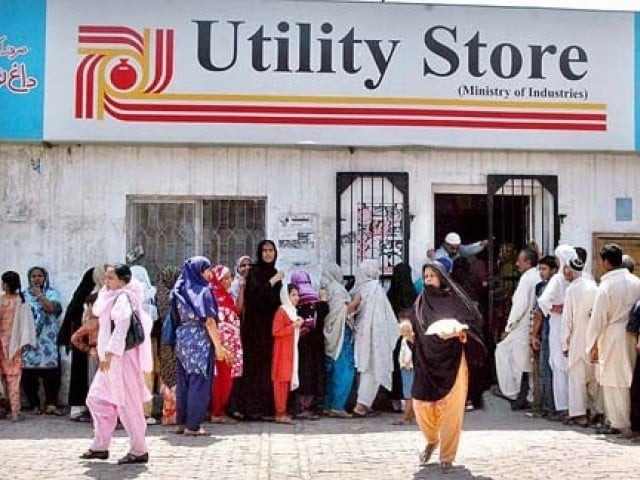Utility Stores Corporation incurs Rs9.4b loss in PML-N tenure, NA told
50 corruption cases registered against utility stores operators

Keeping quality control was the top priority
As many as 50 cases of corruption has been registered against operators of utility stores in federal and provincial areas since 2013, according to documents presented in the lower house in reply to a question raised by MNA Sahibzada Muhammad Yaqub of the Jamaat-e-Islami.
The last time the USC earned a profit (Rs1.4 billion) was in 2012-13 and since June 2013 when the PML-N government took over it is continuously suffering losses.
Relief: Utility stores cut prices of 278 items
The USC is considered to be the biggest state-owned utility food service in Asia with 14,000 employees and 56,000 outlets across the country providing food and daily-use items at subsidised rates.
According to record, USC initially suffered a loss of Rs202 million in June 2013-14, Rs2.2 billion in 2014-15, Rs3 billion in 2015-16 and Rs3.97 billion in 2016-17.
The USC not only suffered continuous decline in profit, it also suffered a visible fall in sales. Its sales earned Rs94 billion in 2012-13 which bottomed out to Rs57.9 billion in 2016-17 that was slightly better than figures for 2015-16 when it was at its lowest at just Rs50.3 billion.
The documents presented in the National Assembly stated that at least 50 cases of corruption had so far been registered against utility stores operators. Of them, 19 were registered in Sindh, 15 in Khyber-Pakhtunkhwa, 13 in Punjab, two in Balochistan and one in the federal capital.
AIDS, TB, control
Officials of the Ministry for National Health Services, Regulations and Coordination told the National Assembly that Pakistan received $217 million because of increased funding by the Global Fund to control AIDS, tuberculosis and malaria.
They were replying to another question raised by Saman Sultana Jafri of the Muttahida Qaumi Movement.
No utility: 39 Utility Stores shut down by USC
As a result, the ministry stated, more cases (35,000) were identified and resulted in excellent treatment success rate (of 93%).
Answering another question, officials of the Ministry of Water Resources stated that 583 dams were operational across the country of which 480 were in Balochistan, 54 in Punjab, 26 in FATA and Khyber Pakhtunkhwa and 23 in Sindh.
Separately, members of the house were also informed that the Drug Regulatory Authority of Pakistan (DRAP) had conducted two national campaigns against spurious drugs last year. The two drives were carried out in collaboration with the Federal Investigation Agency (FIA).
The DRAP also declared 538 drug samples substandard in 2015; 813 in 2016; and 446 in 2017.
Similarly, the authority declared 252 drugs spurious in 2015; 97 in 2016; and 63 in 2017.



















COMMENTS
Comments are moderated and generally will be posted if they are on-topic and not abusive.
For more information, please see our Comments FAQ